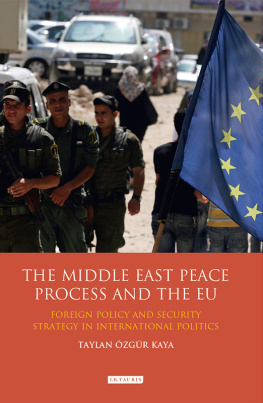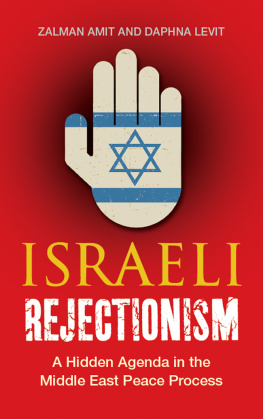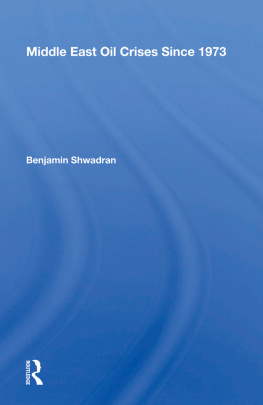
The Yom Kippur War was a watershed moment in Israeli society and a national trauma whose wounds have yet to heal some four decades later. In the years following the war many studies addressed the internal and international political background prior to the war, attempting to determine causes and steps by political players and parties in Israel, Egypt and the United States. But to date there has been no comprehensive study based on archival materials and other primary sources. Classified documents from that period have recently become available and it is now possible to examine in depth a crucial period in Middle East history generally and Israeli history in particular. The authors provide a penetrating and insightful viewpoint on the question that lies at the heart of the Israeli polity and military: Was an opportunity missed to prevent the outbreak of the Yom Kippur War? The book provides surprising answers to longstanding issues:
- How did National Security Adviser, Henry Kissinger, succeed in torpedoing the efforts of the State Department to bring about an interim agreement between Israel and Egypt in 1971?
- Would that agreement have allowed Israel to hold on to most of the Sinai Peninsula for many years and at the same time avert the outbreak of the war.
- Did Golda Meir reject any diplomatic initiative that came up for discussion in the years preceding the war?
- Was the White Houses Middle East policy throughout 1973 a catalyst for war breaking out?
Dr. Boaz Vanetik is a History lecturer at the Achva Academic College (Israel). He has published on U.S. policy in the Middle East and Israels foreign policy. Prof. Zaki Shalom is a senior researcher at the Ben-Gurion Research Institute, Ben-Gurion University and a senior research fellow at the Institute for National Security Studies, Tel Aviv University. He has published widely on the Middle East, including Israels Nuclear Option.
Boaz Vanetik
dedicates this book
To my wife Natalia and my daughter Tal
Zaki Shalom
dedicates this book
To my daughter, Yahel
Copyright Boaz Vanetik and Zaki Shalom, 2013.
Published in the Sussex Academic e-Library, 2014.
SUSSEX ACADEMIC PRESS
PO Box 139
Eastbourne BN24 9BP, UK
and simultaneously in the United States of America and Canada
All rights reserved. Except for the quotation of short passages for the purposes of criticism and review, no part of this publication may be reproduced, stored in a retrieval system, or transmitted, in any form or by any means, electronic, mechanical, photocopying, recording or otherwise, without the prior permission of the publisher.
British Library Cataloguing in Publication Data
A CIP catalogue record for this book is available from the British Library.
Library of Congress Cataloging-in-Publication Data
Vanetik, Boaz.
The Nixon Administration and the Middle East peace process, 19691973 : from the Rogers Plan to the outbreak of the Yom Kippur War / Boaz Vanetik and Zaki Shalom.
pages cm.
Includes bibliographical references and index.
ISBN 978-1-84519-577-9 (h/b : alk. paper)
ISBN 978-1-78284-073-2 (e-pub)
ISBN 978-1-78284-074-9 (e-mobi)
ISBN 978-1-78284-075-6 (e-pdf)
1. IsraelArab War, 1973Causes. 2. United StatesForeign relations Israel. 3. IsraelForeign relationsUnited States. 4. United States Foreign relationsEgypt. 5. EgyptForeign relationsUnited States. 6. United StatesForeign relations19691974. I. Shalom, Zaki. II. Title.
DS128.1.V36 2013
956.04dc23
2012047405
This e-book text has been prepared for electronic viewing. Some features, including tables and figures, might not display as in the print version, due to electronic conversion limitations and/or copyright strictures.
Contents
A phenomenon noticeable through history regardless of place or period is the pursuit by governments of policies contrary to their own interests. Mankind, is seems, makes a poorer performance of government that of almost any other human activity. In this sphere, wisdom, which may be defined as the exercise of judgment acting on experience, common sense and available information, is less operative and more frustrated than it should be.
(Barbara W. Tuchman, The March of Folly: From Troy to Vietnam, Ballantine Books, New York, 1984, )
Introduction
This book seeks to explore the efforts of US President Richard Nixon and his administration to promote a diplomatic settlement between Israel and Egypt during the years 1969-1973 and to analyze the causes that led to the failure of these efforts. The book begins with a description of the geopolitical realities in the Middle East arena following the Six Day War and with an overview of American foreign policy in this arena during the final days of Lyndon Johnsons administration: June 1967 to January 1969. The book goes on to explore the efforts of the State Department led by Secretary of State Rogers, and his Assistant for Near Eastern Affairs, Joseph Sisco, to reach understandings with the USSR regarding the nature of the settlement between Israel and Egypt in the course of the Two-Power Talks. This channel of dialogue between the two superpowers began on March 18, 1969, and continued intensively for some eight months and eventually led to the most comprehensive American initiative for solving the Middle East conflict during the Nixon administration the Rogers Plan of December 1969. The book goes on to describe the success of the US in bringing an end to the War of Attrition between Israel and Egypt in August 1970, and the State Departments failed attempt to promote, in 1971, the Interim Agreement in the Suez Canal area between the two countries. The book ends with an analysis of the causes that led to a political stalemate in the Middle East in the wake of the State Departments failure to achieve an intermediate settlement between Israel and Egypt in the summer of 1971, up until the outbreak of the Yom Kippur War in October 1973.
The question at the heart of this book is why did American attempts in the years 1969-1973 fail to achieve a diplomatic settlement in the conflict between Israel and Egypt? One of the primary conclusions the study suggests is that without clear, unambiguous backing from the president and active participation of the White House in the diplomatic process there were but slim chances of attaining real progress in the process. The parties involved in the conflict, namely Israel and Egypt, had the impression that during that period the US did not place its full weight and prestige behind the effort to solve the Middle East conflict. It was clear to both Israel and Egypt that as long as President Nixon did not involve himself personally in the negotiation efforts between the two countries, the chances were slim that real progress would be made in the political process. At that time neither of the opposing sides were sufficiently impressed that the American envoy (chiefly Rogers and Sisco) carry with them the clear and solid backing of the White House.
The only successful State Department initiative during that time was the effort to reach an Israeli-Egyptian ceasefire in the summer of 1970. This agreement was concluded only after the American President himself sent a personal letter to Israeli Prime Minister Golda Meir, urging her to accept the initiative and promising an appropriate reward in the form of military and financial aid and political backing for Jerusalem on the international stage. In contrast, the Rogers Plan of December 1969 failed not only because of the deep rift in Israeli and Egyptian positions, but primarily because the president and his National Security Advisor, Henry Kissinger, deliberately undermined the initiative. Israel, which viewed the plan as a serious threat to its security, saw that there was no reason to acquiesce to the requests of the State Department to adopt the Rogers Plan when the president himself was communicating to the Israelis through his confidants that he was not in favor of it.







